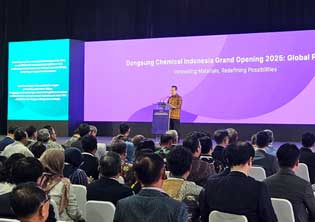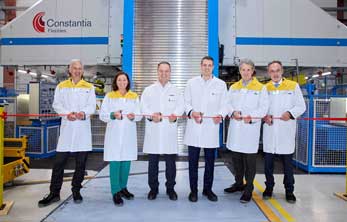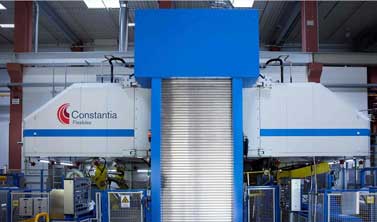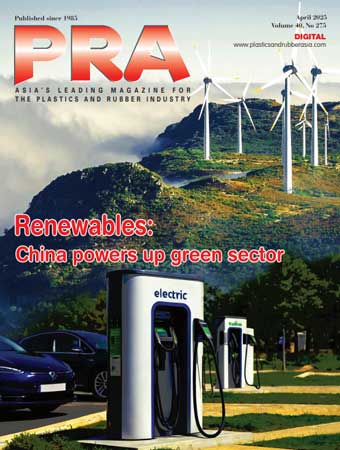Expansions: Dongsung Chemical opens PU facility in Indonesia; Constantia Flexibles invests EUR50 mn in Austrian plant with rolling mill

South Korea-based Dongsung Chemical recently held a ceremony attended by over 200 guests, including key leaders and dignitaries from Korea and Indonesia to commemorate the opening of its Karawang facility in Indonesia. Construction began in September 2023 and trial production was completed earlier this year, with full-scale operations commencing in February 2025.
Spanning 81,000 sq m, the new plant has a production capacity of 67,000 tonnes/year of prepolymers, polyester polyols, and polyurethane resins, tripling the output of Dongsung Chemical’s existing PU plants in South Korea, Vietnam, and China. It is also expected to generate approximately US$150 million in annual revenue.
The plant is also equipped with storage capacity for up to 1,000 tonnes of essential PU raw materials, ensuring supply chain stability and uninterrupted production, even in the face of global disruptions, says the company. Advanced automation systems further improve operational efficiency and product quality.
Positioned in one of Indonesia’s key industrial zones, the plant will serve as a strategic base for Dongsung Chemical’s global expansion, particularly across Southeast Asia, the Americas, and Europe. Beyond its existing footprint in footwear, synthetic leather, automotive, and electronics, the company plans to enter the furniture materials market.
Chairman Jeong-Ho Baek added, “This plant will become the leading PU production base in Southeast Asia and a vital hub in our global network. We remain committed to creating exceptional value through innovation and sustainable practices.”

In other news, packaging supplier Constantia Flexibles has expanded its rolling mill at its main plant, Constantia Teich, in Austria. It adds that this expansion of the rolling mill promotes a more sustainable, local aluminium foil production and strengthens the stability of European supply chains, enabled by the EUR50 million investment from the world's third-largest manufacturer of flexible packaging. An additional EUR30 million have been invested in a new lacquering line in recent years, it continued.
"With this investment, we are making a clear statement for growth, innovation, and sustainability. By expanding the rolling mill, we are increasing aluminium foil production by around 30% up to 90,000 tonnes of aluminum foil per year, making our largest plant in the group also one of the largest integrated producers in Europe," emphasized Daniel Winkler, EVP Aluminum Division & Group Sustainability at Constantia Flexibles. "At the same time, we are making a significant contribution to decarbonization, avoiding approximately 100,000 tons of CO2 emissions."

Constantia Flexibles relies on technologies from European suppliers for the overall investment. It includes three foil stock furnaces, a rolling station, a separator, three double chamber foil furnaces, the expansion of the high-rack-storage, and a lacquering line. The power supply will be ensured partly by renewable energies, including a large-scale, company-owned photovoltaic system.
Wolfgang Kitzler, Managing Director of Constantia Teich, highlighted the regional significance of the investment: "The expansion of the rolling mill not only strengthens our competitiveness but also the economic location of Lower Austria. We are creating long-term jobs and ensuring an independent, stable supply of high-quality packaging material for the European packaging industry."
"The industry is currently under enormous pressure. That is precisely why it is an important signal that a leading company like Constantia Teich is deciding on this major investment for growth, innovation, and future security. The Chamber of Commerce of Lower Austria is vehemently advocating for improved conditions for the industry – from relief in ancillary wage costs to competitive energy prices", said Thomas Salzer, Vice President Chamber of Commerce of Lower Austria (WKNÖ).
The expansion of the rolling mill enables Constantia Teich to increase its capacities, particularly in strategic growth areas such as coffee capsules, pharmaceutical, and food packaging. The first commercial production has now started.
(PRA)SUBSCRIBE to Get the Latest Updates from PRA Click Here»









